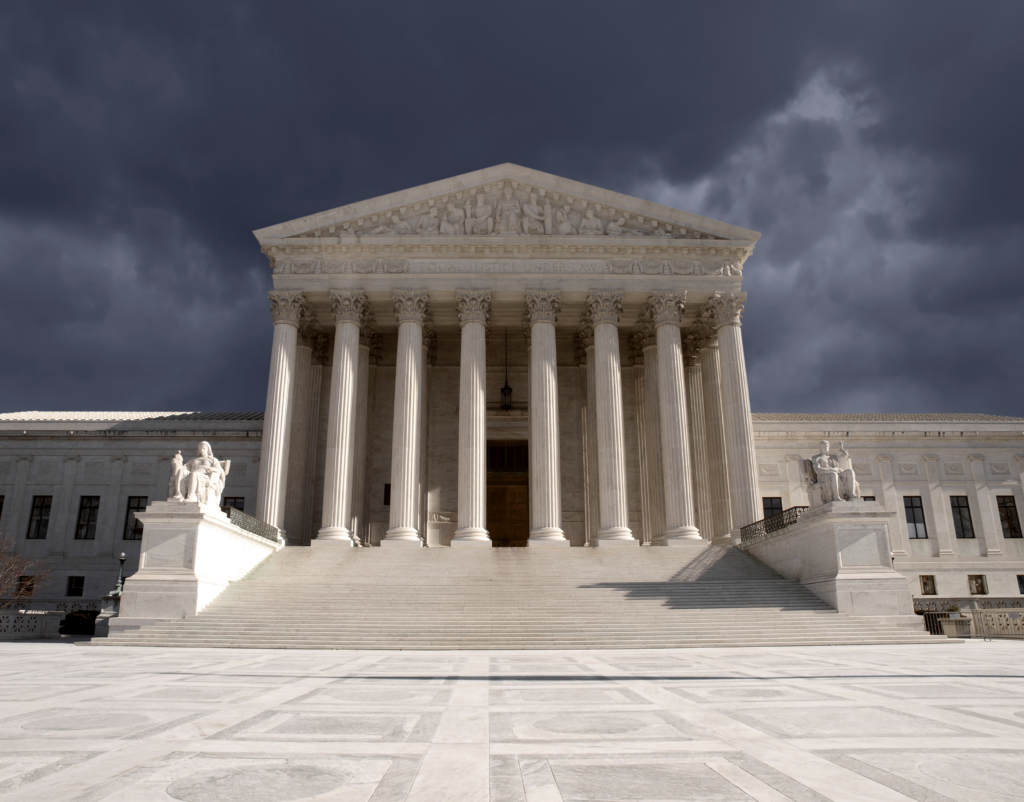SCOTUS Sounds Skeptical of Right-Wing Push for Flood of Election Law Challenges

At U.S. Supreme Court oral arguments Wednesday, the justices signaled they’re wary of making it significantly easier to challenge election laws, as a Republican member of Congress and his allies are urging them to do.
Leading right-wing advocates for restrictive voting rules — including Cleta Mitchell and the Public Interest Legal Foundation — have seized on the case, urging the court to unleash a torrent of post-election ballot challenges from candidates and other election officials. That could potentially cause chaos during the counting and certification process, as the right schemed to do in the wake of the 2020 election.
Rep. Michael Bost (R-Ill.) sued in 2022 to challenge a state law authorizing mail-in vote counting for 14 days after the polls closed, provided the ballots were mailed by Election Day. He claimed counting late-arriving postal votes violates the Constitution.
Get updates straight to your inbox — for free
Join over 350,000 readers who rely on our daily and weekly newsletters for the latest in voting, elections and democracy.
After Bost lost in lower courts, the Supreme Court agreed to hear arguments limited just to the issue of standing. The court is considering the validity of counting mail-in ballots that arrive after Election Day in a separate case challenging Mississippi’s postal voting law.
Arguing on behalf of Bost, former solicitor general Paul Clement claimed that any federal candidate should have automatic standing to question election rules in court. But the justices seemed less interested in that argument, instead focusing on the narrower question of whether the original lawsuit sufficiently asserted that Bost had actually suffered a concrete injury from Illinois’ law.
If the justices return an opinion granting Bost standing on those narrower grounds, it could lead to more election-related lawsuits being filed. But not nearly as many as it would if they adopted his broader argument: That all federal candidates, and even other elected officials, should have standing to challenge election laws.
The justices opened their interrogation of Clement focusing on Bost’s claim that the late-counted ballots could reduce his margin of victory, inflicting a legit injury even if Bost won (as he did).
Justice Clarence Thomas questioned that logic, noting Bost could even benefit from extra time. Justices Sonia Sotomayor and Elena Kagan piled on that same point.
“Your rule really does just take out the injury requirement entirely,” Kagan said to Clement.
Justice Ketanji Brown Jackson noted that the idea of a lesser margin-of-victory inflicting harm sounded speculative — not nearly concrete enough to provide standing. Clement countered that any lawsuit challenging voting rules before Election Day would involve “a little bit of speculation.”
Clement then pivoted to his more aggressive argument, saying “I think that is a pretty good advertisement for a broader, simpler rule that simply says candidates have standing to challenge the rules that govern the election.”
Brown Jackson said that required a candidate-centric worldview.
“When you’re talking about an election, it’s not the candidates who are the object, it is the voters,” she said. “Really, what an election is, is the opportunity for the people to decide who are going to govern them.”
The justices spent little time questioning Clement on the other narrower argument for standing — that Bost suffered a classic “pocketbook injury,” by having to spend money on ballot-counting operations for the two weeks after Election Day. Instead, they grilled Illinois Solicitor General Jane Notz on the issue as she argued for upholding the lower court’s decision.
The Department of Justice (DOJ) also argued on behalf of Bost, but only to support the narrower claim, arguing that the risk of losing an election due to counting mail-in ballots sufficed for standing’s sake.
Thomas wondered if it mattered if the race was tight. DOJ lawyer Michael Talent responded that it didn’t, later adding that even long-shot third-party candidates should be able to sue.
Kagan suggested that the DOJ was “searching for a problem,” in joining this case, noting that the parties and voters themselves almost always have standing to challenge election laws.
The justices were also dubious of Talent’s comparison of Illinois’ ballot receipt deadline to Russian roulette, with Chief Justice John Roberts noting that a one-in-six chance of death is hardly the same as a reduced vote margin.
Along with Roberts, Justice Brett Kavanaugh focused on the question of remedy in election law cases throughout the morning’s arguments. If a candidate can’t show standing to question election rules before votes are cast, then does that mean the remedy is to throw out the late-arriving ballots, even though voters thought they would be counted?
Clement said that would be the right remedy, even though that’s “a nightmare scenario.”
Maya Bodinson contributed to this report.